Surviving and Thriving to Help God’s Children: Victoria Damone & Catherine Wood
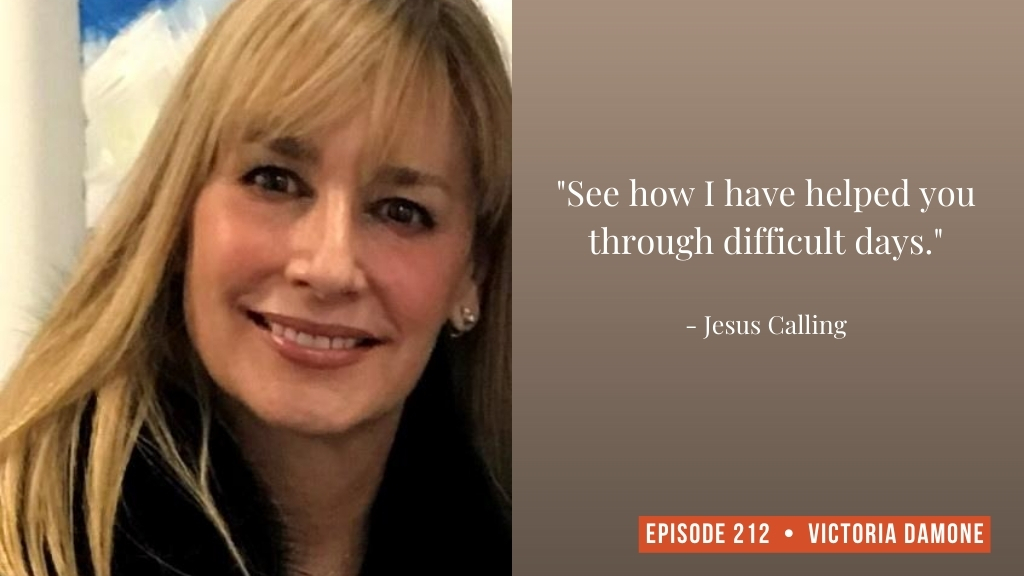
Victoria Damone: Each of us are children of God. Even if they don’t know God, they’re children of God, and we’re supposed to do unto others as we would want them to do unto us.
Surviving and Thriving to Help God’s Children: Victoria Damone & Catherine Wood – Episode #212
Narrator: Welcome to the Jesus Calling Podcast. God has called each of us to love and care for the people in our circles and beyond. We may come from a background where that care and love wasn’t demonstrated to us as well as it could have been, or we may feel like an outsider and not know where to channel help to others. Our guests this week have had different paths to discovering how they can give back to the world, but once they found it, they realized the joy in giving of their unique gifts in service to others: Victoria Damone and Catherine Wood.
Victoria Damone is the executive vice president of Strategic Partnerships for OneShare Health based out of Irving, Texas. Victoria came from a background of entertainment royalty as the daughter of legendary 1950s crooner Vic Damone, and her mother, actress Judy Rawlins. Her childhood was far from glamorous, however, as her parents’ careers often took them away from Victoria and her sisters. After Damone and Rawlins split, the three girls were primarily under the care of their mother, who was struggling with addictions. By the time Victoria was eight, her mothers’ issues took a tragic turn. Victoria describes how she and her sisters survived and Victoria herself found a way forward to give back to others in ways she never thought possible.
Victoria Damone: My name is Victoria Damone. I’m the oldest of three girls, and we grew up as the daughters of Vic Damone, the singer, and our mother was Judy Rawlins, and she was an actress and a cartoonist. We were all born in Beverly Hills, California.
Growing Up in the Glow—and Challenges—of Hollywood
My sisters and I are very, very close. While we lived with our parents, I think they divorced when I was about five years old, and then we moved with our mother to Brentwood, California, and we lived with her for three years—for myself, from age five to eight years old.
In the time of our growing up, our mom was challenged with some drug addiction. And having a dad that was on the road quite a bit, we really did not have the luxury—I hate to say that, but it’s true—of having that time to play with dolls or to really enjoy what would be just playtime. We did not have that. There was absolutely no time to be a kid.
I do recall my dad—and I think my sisters would remember this as well—did teach me how to ride a bike. And so the time that he did spend with us, I think he really aspired to have it be quality time. And he was a pretty simple man, even though he liked nice things and he had done some amazing things in his life. He was a simple man from Brooklyn. So he found joy in cooking and having his kids around and his dear friends.
But childhood for us was quite challenging and it was not easy, although I have to say that I think our mother tried very hard to be the best she could be. She was just an outstanding individual.
I do recall that she had this sense of pulling people in, like people would gravitate to her. She had this ethereal way about her. And she was really a farm girl. I mean, she lived in the valley in California, and her dad was a musician and she was raised with orchards and animals and plants. But yet she was this glamorous, beautiful woman and had a wonderful path to grow into a career in acting, and had been a cartoonist for Disney. And when she met our dad, I think that she had wanted to have the household with the family and the children, but the challenges of show business at that period of time, in the late ‘60s, the nightclubs, you’d be up all night and then you’d have these three children.
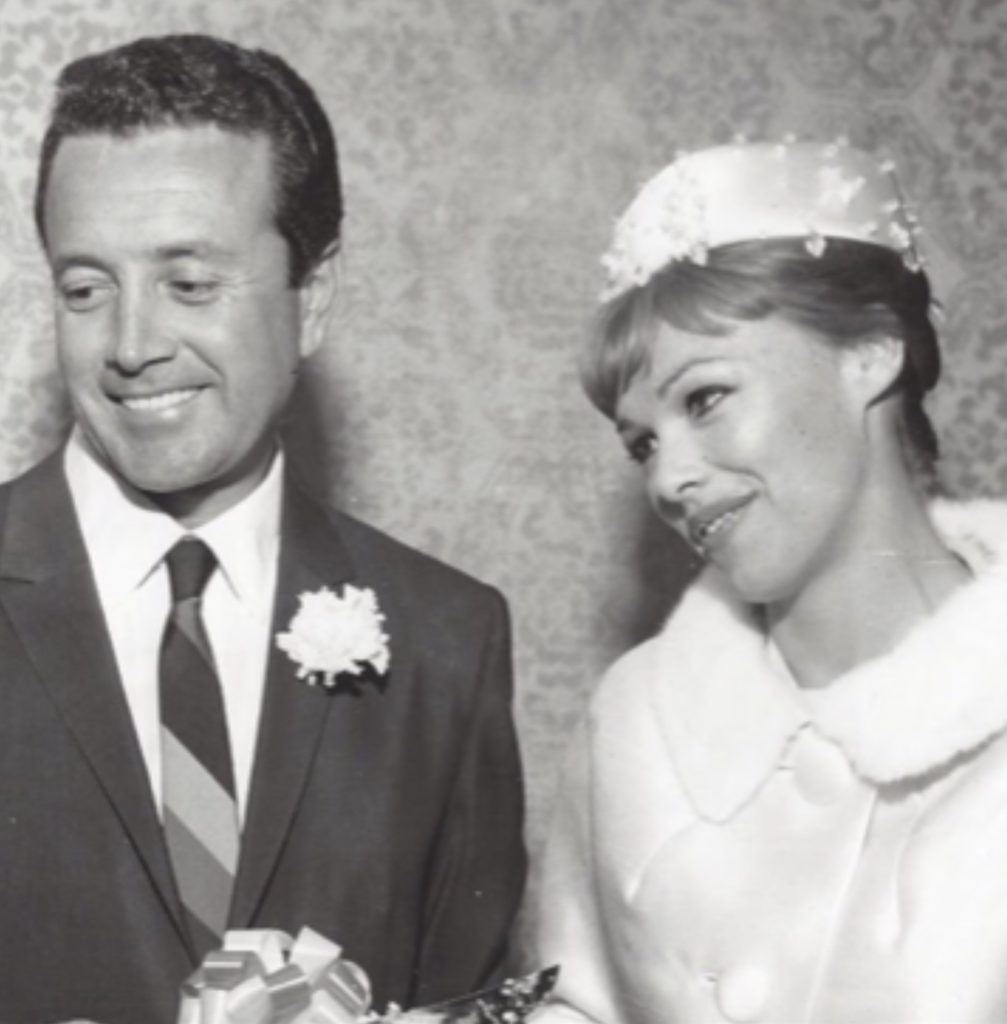
I think where she got into trouble was probably balancing trying to stay awake and be on top of what we call “your game.” And then also raising, you know, three little girls. I think that there was just a challenge there, and drugs were much more accessible then, and not regulated. And I don’t think we had the support system there for people that might have been needing that support.
Our dad really tried as well to be a very present dad when he was with us. But, you know, being children of an entertainer is not easy. I think times are different today and, you know, offspring of those kind of environments—I would probably say all the children that we would know that are in that sort of same sect probably learned a lot about their background, absentee parents and being raised by governesses and people that would be taking care of us rather than our parents. So it was a very different environment than most of our friends, when we were growing up, and so that was a challenging childhood for all three of us.
I know that God was watching over me in my younger years, and my sisters as well. But I don’t think that we really had the scaffolding that most people did.
“I know that God was watching over me in my younger years.” – Victoria Damone
Our mother passed away when we were eight years old, or I was eight years old, and my two younger sisters and I were in a pretty precarious, difficult spot. When she died, I think a part of each of us, my sisters and I, died along with her because of that loss. We were really in a state of flux as to what we were going to do, because Dad was on the road. So we spent five years living in a place that was probably not the safest and best place for my sisters. It was a trusted family friend that was basically helping to care for us after my mother had died. My sisters and I went there, which was supposed to be just for a year. It turned out to be about five years. And during that time, I would say we learned a lot, my sisters and I together, about how to survive.
Surviving the Loss of a Mother
I think that the challenges in the wake of having a parent pass away in a suicidal fashion, and then to have a dad that wanted to do the best he could, but was also just juggling a career, was a challenge for my sisters and I. That’s probably one of the reasons we’re so close, because we were really in it together.
And in our journey, those few years afterwards were so isolating and very scary.
I think that I always knew—and I think my sisters would say the same—that there was God. We didn’t know how to articulate that, but we knew that there had to be something more. This couldn’t be it. This couldn’t be the end.
When we finally did move to be with our dad in Texas, which was when I was about thirteen, that’s when it was almost like opening the blinds to a room, and we saw what was what a family looks like, and really tried to acclimate into schools and make friends and have some stability.
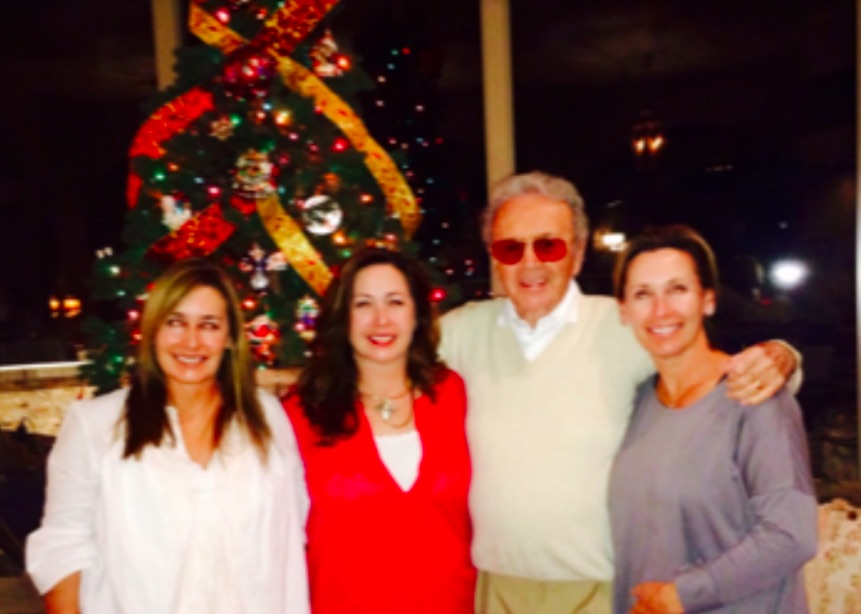
I remember when it was a time for me to go to college that I really lobbied to go to college. You know, our dad had not gone to college. He had left school when he was about thirteen years old to support his family in Brooklyn. So that was another time to kind of explore and learn about God and faith in my journey, about learning about Christ and what He had done for us on the cross. And I don’t think that I really understood that, “Give us this day our daily bread,” meant studying and learning and really trying to understand the Bible and that we truly were not alone when we were little. There was divine intervention for each of my sisters and I that was watching over us.
I think that the blessing for us was that we had the wholesome wiring that I think dad instilled in us. He wired us well, but I think that also there’s a survivalist mentality, too, for any children, especially children that are raised in the era that we were. But understanding, too, that their success is not our success. You know, you have to really understand that his success was not something that we sit on his coattails for. It’s an appreciation for the privilege. He really did kind of help build the scaffolding later, to try to show us what things were important. And even though we all fail miserably, we can aspire to do the best we can. But I think that’s when God walks in.
“Even though we all fail miserably, we can aspire to do the best we can. But I think that’s when God walks in.” – Victoria Damone
Starting a Career of Caring
About seventeen years ago, I was on a plane, and I sat next to a gentleman who spoke with me a little bit about insurance. I was needing to decide what I was going to do as far as a career. My girls were getting older, and it just hit a chord with me.
I started investigating the insurance industry, and I thought it was really interesting because there’s a sort of caregiving mentality with people that are in the insurance industry. I feel there’s a core thought process of caring for others. And so as I went through the last seventeen years and worked at a handful of places and and I loved each one of them, I ended up at OneShare Health because I knew a couple of the individuals that were leading the company and really initiating the beginnings of something that was a faith-based organization. So it married everything I was looking for, which was a faith-based organization and a highly credible solution for people that needed health care options.
And I feel like this role with in the app form, and also being a part of this community of believers—we’re now over 300 employees and 50,000 plus members and wonderful leadership. And we really kind of are a family where we’re bridged together. And in this day and age, to have a career in something that you love—I love what I do, but I also love the thought that we’re we’re part of something that can really help people emotionally with their health care needs, but also that we can help other organizations and we can make a difference.
“I love what I do, but I also love the thought that we’re part of something that can really help people emotionally with their health care needs, but also that we can help other organizations and we can make a difference.” – Victoria Damone, on working at OneShare Health
You know, so many people feel that they’ve got to show the world what they’re doing. And I don’t know if that’s always so necessary for us to live like that. And especially when we’re living in a world where everything is so transparent, everything that we’re doing, including what we had for breakfast, is often posted.
But I think having some discretion and also looking at the goodness and doing things for the right reasons is a wholesome way to approach life, And taking those life experiences like the accumulation of what my sisters and I went through, good and bad, and saying that’s shaped us to understand what it’s like to have a parent who committed suicide, to have a dad that was in show business, and in some perilous, awful people that were around us for several years, but then also seeing the grace in it. You know, these were also learning times for us to take all that information and really understand what it’s like to walk in somebody else’s shoes that may have had those issues and know that you’re not alone. As I got older, and now being almost fifty-five, it’s the fabric of who I am.
And actually, my sister-in-law, Paige, had given me my first copy of Jesus Calling, and it had just come out in the app form. That was very meaningful to try to incorporate that into every part of my daily routine, the rituals of reading that. And that was a beautiful thing. My daughters have it and read it as well, it’s part of our daily ritual.
I think that one of the things we’ve lost today in this world is understanding that we’re all so frail, and yet there’s a strength about us. Maybe even during this pandemic, you know, try to understand how to get along if you’re living in a household with your family and you’re with them 24/7. Give people the benefit of the doubt, walk in their shoes or try to walk in their shoes, see the big picture instead of labeling them or trying to insinuate that they had an ugly motive versus giving them an opportunity to shine. I think that that’s where grace comes in.
When I think of Jesus, I think of Him sitting at the table and ministering and teaching people that were perhaps the unsavory characters, the people that were abandoned. And yet those are the individuals that need the most love and understanding. And we should treat people with goodness and kindness and be generous and see the good instead of being quick to judge.
“When I think of Jesus, I think of Him sitting at the table and ministering and teaching people that were perhaps the unsavory characters, the people that were abandoned. And yet those are the individuals that need the most love and understanding.” – Victoria Damone
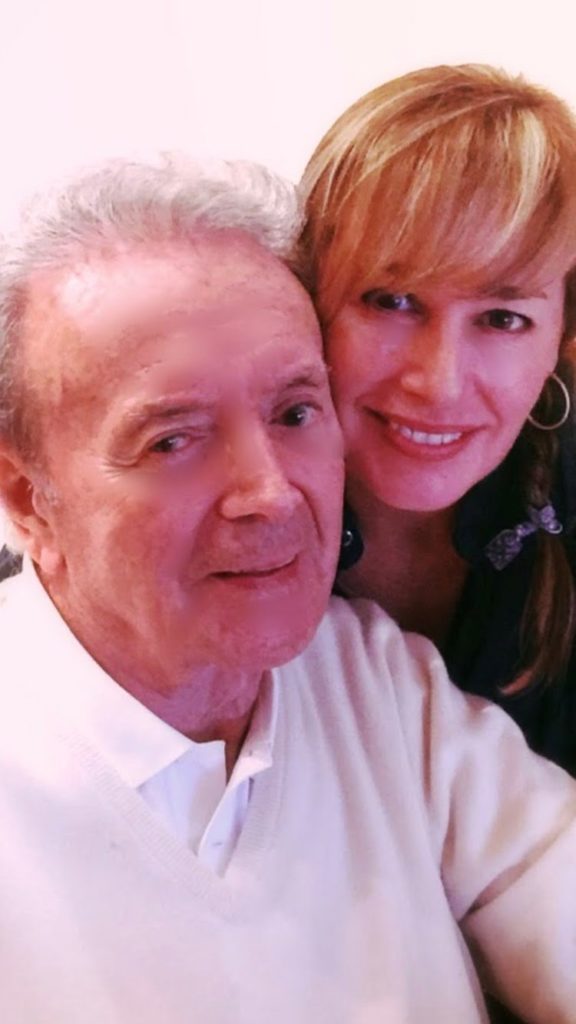
You know, I have challenges, but I feel like I’m still a work in progress. And I will continue to be every day. He’s trying to anchor me, and where things can shake me, He’s still there. He’s still with me. And He’s bringing gifts into my life every single day with my family and my loved ones. He will open up the way before me, one step at a time. Be assured, sometimes you don’t see it, but you sense it. You don’t live by sight sometimes with our faith. You have to do it by faith.
Narrator: To learn more about the work Victoria does with OneShare Health, visit onesharehealth.com.
Stay tuned to hear our interview with finance expert Catherine Wood after a brief message about a new video series from Jesus Calling on YouTube.
Ad: Jesus Calling is always looking for stories that might add peace to your life. In that spirit, we’ve created a brand-new video series on YouTube called “Peace for Everyday Life” that features celebrities, authors, and people from all walks of life sharing the ways they’ve been able to connect with God to conquer worry, fear, anxiety during uncertain times. You can find these videos at YouTube.com/JesusCallingbook. And be sure to subscribe!
Narrator: Catherine Wood is on a mission to discover God’s new creation and make the world a better place, and she does it in a way that you wouldn’t think of immediately. In 2014, Cathie founded an investment firm called ARK Invest, and they work to identify and invest in the leaders of the world’s newest and most innovative technologies. Catherine tells us about her rich career in the finance industry, and how her faith and trusted resources like Jesus Calling helped keep the ground under her feet during some of the most shaky times in our economic history.
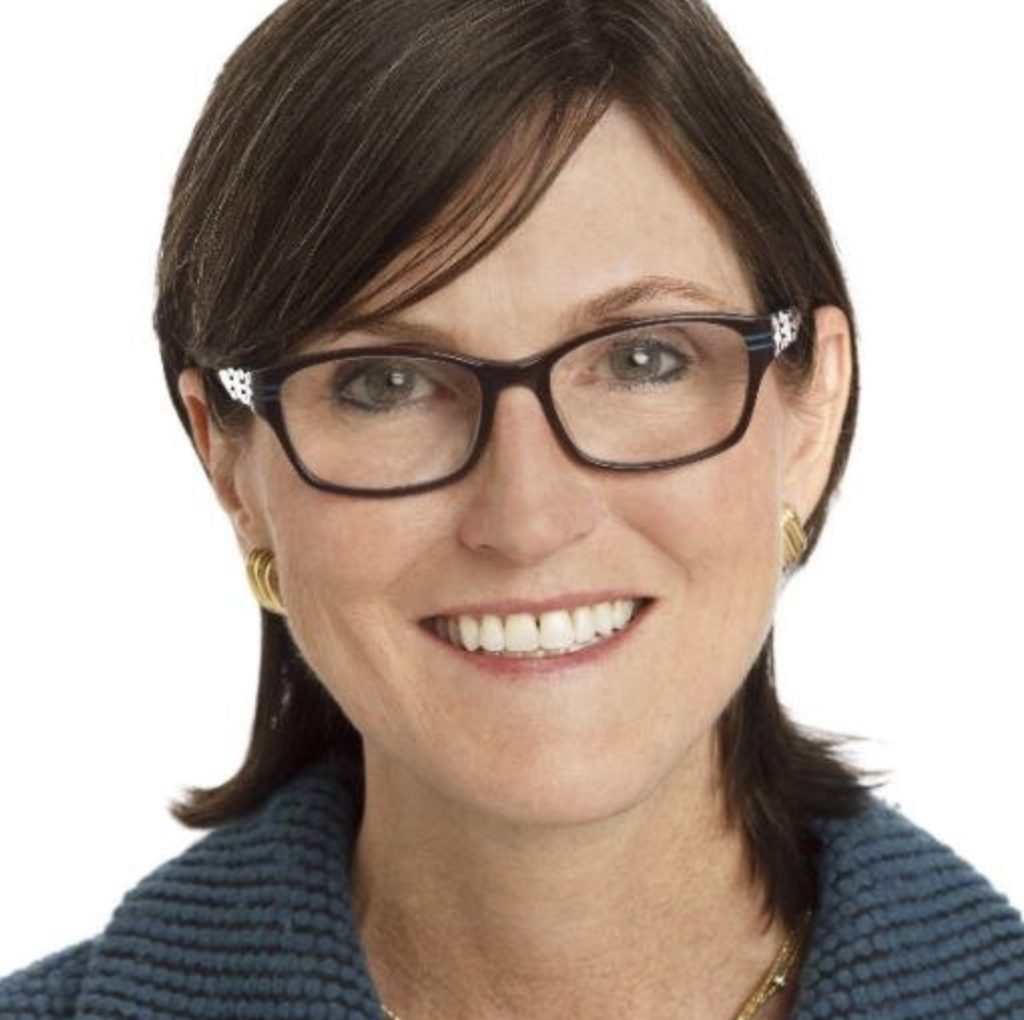
Catherine Wood: My name is Cathie Wood. First of all, I’m the mother of three children, Caitlin, Caroline, and Robert, and I’m also the chief executive officer and chief investment officer of a company I founded in 2014 named ARK Invest.
Born with “The Gift of Faith”
So I was born with the gift of faith. I really do believe that. It has come very easily to me, though it has evolved and deepened over the years. And as a child, I think I did start to develop a relationship with God, the Father, and Jesus, our Redeemer.
As I grew older and left home, when I was on my own, faith took on a completely new dimension. It deepened as I was going through college. Having been born the child of immigrants in the United States, I was very fearful as I went into college that I was the oldest and I had to carry the mantle for the family. And so I approached it with a great bit of trepidation.
So every time I moved into a moment like that in my life—college would be one; when I started my career, another; when I moved to New York in my career, another; when I went through the various crashes in the stock market, so the tech and telecom bust and and the 2008/2009 meltdown; when I went through my divorce—each of those times was a time of deepening my faith. I never felt that God was leaving me or deserting me. I felt like I had to hold on a little tighter.
“I never felt that God was leaving me or deserting me. I felt like I had to hold on a little tighter.”
Innovation Means Discovering God’s New Creation
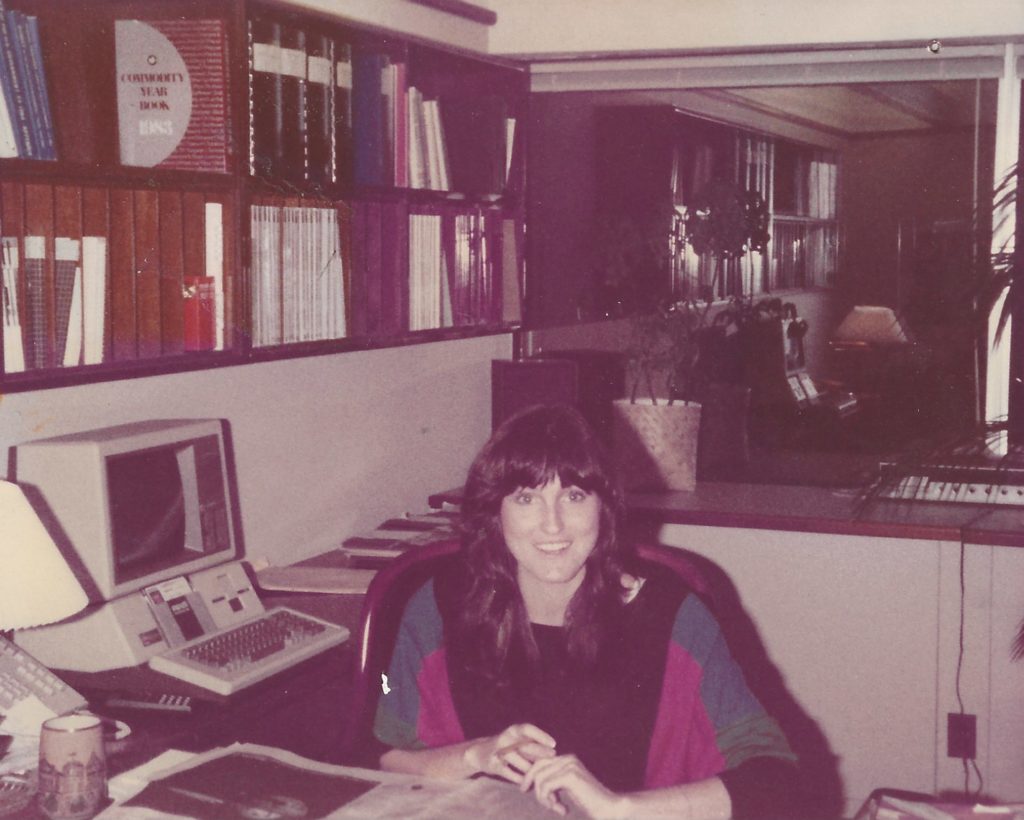
I started my career at the age of twenty, [I was] introduced to Capital Group on the West Coast by a mentor from college, Art Laffer, who is a famous economist. And I worked my way through Capital as an assistant economist and then moved on to Jennison Associates in New York City, where I spent eighteen years. So I grew up there, and they gave me an amazing opportunity to grow as a professional.
While I was at Jennison, I started thinking about the markets in a way that began to differ from the way markets are analyzed today. I couldn’t cover something that someone else obviously was covering at the firm, so I had to wait for new ideas to come along, ideas that sort of fell through the cracks that nobody wanted. I often say I was like a little dog under the table scrapping for bones.
And these stocks came along one by one. They were usually new companies coming to market, Reuters and Telerate being one of them. Nobody wanted database publishing companies, and I thought, Wow, that’s a very interesting concept. So I picked it up. That concept ended up becoming the World Wide Web and the Internet. So an idea that was dismissed or discarded as falling through the cracks, I wanted and I ran with it.
That is what made my career, but also made me appreciate innovation, the power of innovation, how much it’s underestimated in the early days and how exponentially explosive growth can be over time.
Finding Jesus Calling in the Midst of the Maelstrom
2008/2009 was a wakeup call for the financial world, truly. Two years prior to that, I had become very confused about what was going on in the world. There were all kinds of conflicting signals. Commodity prices, including oil prices, [were] soaring and interest rates [were] starting to tip down. And regulators in the United States [were] saying, “We don’t think we like these exotic home equity loans and we’re going to look more closely into them.” And I began to feel that something was very wrong. So we pulled a lot of the risk out of our portfolios—anything cyclical, anything housing related. And we did very poorly that year. I thought being up five percent in a year when the market was up twelve or thirteen percent, that I had done a horrible job, and I began to feel terrible about myself.
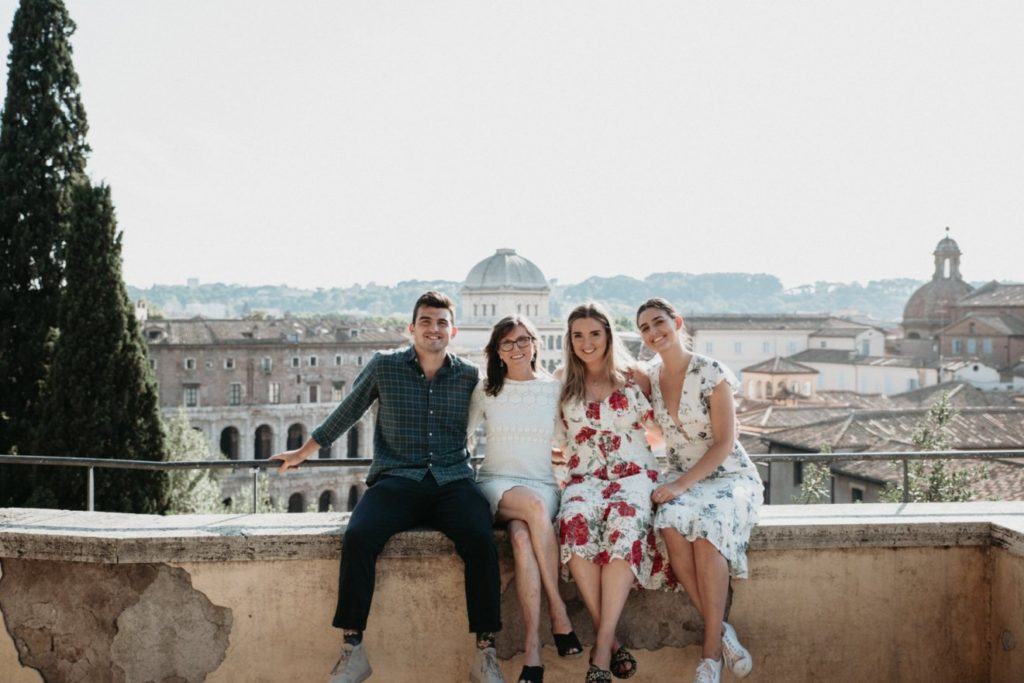
Well it turned out I belong to a group at Walnut Hill Community Church, an incredibly supportive group for leaders of companies. One of the leaders introduced me to the book Jesus Calling and said, “I have just become a believer. I’ve started reading this book.” His wife had been a believer for her entire life. “I’ve started reading this book, and it’s transformed me in terms of thinking about my business in the context of my faith.” And so I began to read Jesus Calling every day, starting in 2006. And it really helped to center me and ground me.
First thing I do in the morning as my coffee is brewing, I read Jesus Calling, and it always centers me. I’ve read each page thirteen times, but I don’t remember because I’m at a different place in the journey. The reading each day means something different today than it did thirteen years ago. I would say almost every page is meaningful.
I just opened randomly to this page, it was for January 19th. And yes, in reading it, it provides the epitome of what I feel each morning. So it says:
SEEK MY FACE, and you will find more than you ever dreamed possible. Let Me displace worry at the center of your being. I am like a supersaturated cloud, showering Peace into the pool of your mind. My Nature is to bless. Your nature is to receive with thanksgiving. This is a true fit, designed before the foundation of the world. Glorify Me by receiving My blessings gratefully. I am the goal of all your searching. When you seek Me, you find Me and are satisfied. When lesser goals capture your attention, I fade into the background of your life. I am still there, watching and waiting, but you function as if you were alone. Actually, My Light shines on every situation you will ever face. Live radiantly by expanding your focus to include Me in all your moments. Let nothing dampen your search for Me.
Funding Technologies That Change Lives
Well, I started ARK Invest at the age of fifty-seven, so it was quite late in my career. I believe my career is starting all over again, though. I decided to name my company after the Ark of the Covenant, because as I was going through that very difficult period starting in ‘06, where the market, nothing made sense to me, I started reading the One-Year Bible, after I would read the passage for the day, I would then just open it up randomly and say, “God, speak to me. Just show me what to do. Show me Your will. Show me Your way.”
And not every time I did that, but I would say every third or fourth time, I would run into the Ark of the Covenant being taken into the Israelites, taking the Ark of the Covenant into battle before them, because they believed that the presence of God was in the Ark of the Covenant. As I began to get this idea of a firm going and realized that I was fighting this war, I knew I had to name my company “ARK” for Ark of the Covenant.
I founded the company out of faith. I got this calling one day when I walked into my home. It was a beautiful summer day. I walked in to complete silence, which was very unusual in my household at that time. The children were all gone to Christian camps and other activities. And so I was all alone for the first time ever in my house, all alone for two full weeks. And I walked over to the kitchen island and I wasn’t happy and I wasn’t sad. I was just, Wow, this has never happened to me before.
As soon as I said that to myself, I felt a wham and I really feel like that was the Holy Spirit just saying to me, “Okay, this is the plan.” And the idea was basically, “Look, you’ve been a student of disruptive innovation your entire career. Why don’t you disrupt your own industry? It’s broken. Why do you disrupt it with some of these new technologies? Why don’t you harness social media? Why don’t you invite people in—even your competitors—to brainstorm about these new ideas, to help spread the word?” And so I did that, and it’s been amazing. It’s so much better than anything that I could have possibly imagined.
I funded it for the first three years all by myself. And for the first three years, our assets didn’t grow that much. And I thought, Oh my goodness, what have I done? Every two weeks there was an exit of a significant amount of my wealth into the company. And I would kneel down and say, “Okay, God, You’re in control. Even if this company fails, I know I’ve done the right thing. This is a walk of faith for me. Your will be done.”
“I would kneel down and say, ‘Okay, God, You’re in control. Even if this company fails, I know I’ve done the right thing. This is a walk of faith for me. Your will be done.’” – Catherine Wood
What we were really doing was encouraging the new creation, God’s new creation. We were allocating capital to its highest and best use: transformative technologies that were going to change the world and make it a better place, while the rest of the world started investing in the past, which they thought was safe. Today, the tables are flipped, so we feel like we’ve done the right thing. It is by God’s grace and the power of the Holy Spirit, I will tell you, that I moved in this direction.
God’s standard of success for me in the financial world, and in my life generally, is following His will. And I believe that in starting ARK Invest, I was fulfilling His will for me here on Earth and that if I had not done it, that I would have died an unhappy woman not having not fulfilled my promise here. And so it’s not so much about me and my promise. It’s about allocating capital to God’s creation in the most innovative and creative way possible.
“I believe that in starting ARK Invest, I was fulfilling His will for me here on Earth and that if I had not done it, that I would have died an unhappy woman not having not fulfilled my promise here.” – Catherine Wood
Narrator: You can learn more about Cathie and ARK Invest at ark-invest.com.
If you’d like to hear more stories about people using their God-given talents to serve others, check out our interview with country music artist Josh Turner and NASCAR driver Michael McDowell.
Narrator: Next time on the Jesus Calling Podcast, we speak with motivational speaker and author Trent Shelton. When he was a little boy, Trent dreamed to play in the NFL and worked tirelessly for years to make his dream a reality. He eventually made it to the League—but found that life at the top was a bit rockier than he was banking on.
Trent Shelton: I was dealing with being released from NFL teams and having an uncertain life. You know, one week you’re here, the next week you’re at home. You don’t know where you’re going to be in different cities. And I found myself really questioning God and just becoming angry. And it took one of my closest friends committing suicide to really wake me up in my life and make me realize, like, What am I doing with myself? Do I want this to be the legacy that I leave for my family, for my kids and for my grandkids? That answer was no.
Narrator: Want to hear more inspirational stories of people who have been changed by a closer walk with God? Then subscribe today to the Jesus Calling Podcast on Apple Podcasts, Stitcher, or wherever you listen to your podcasts. And please be sure to leave a review, which helps us reach and inspire others with these stories. Plus, if you like seeing our guests as well as hearing them, you can find video interviews available on our Youtube channel at youtube.com/jesuscallingbook, on Facebook, and on the Jesus Calling Instagram page.

